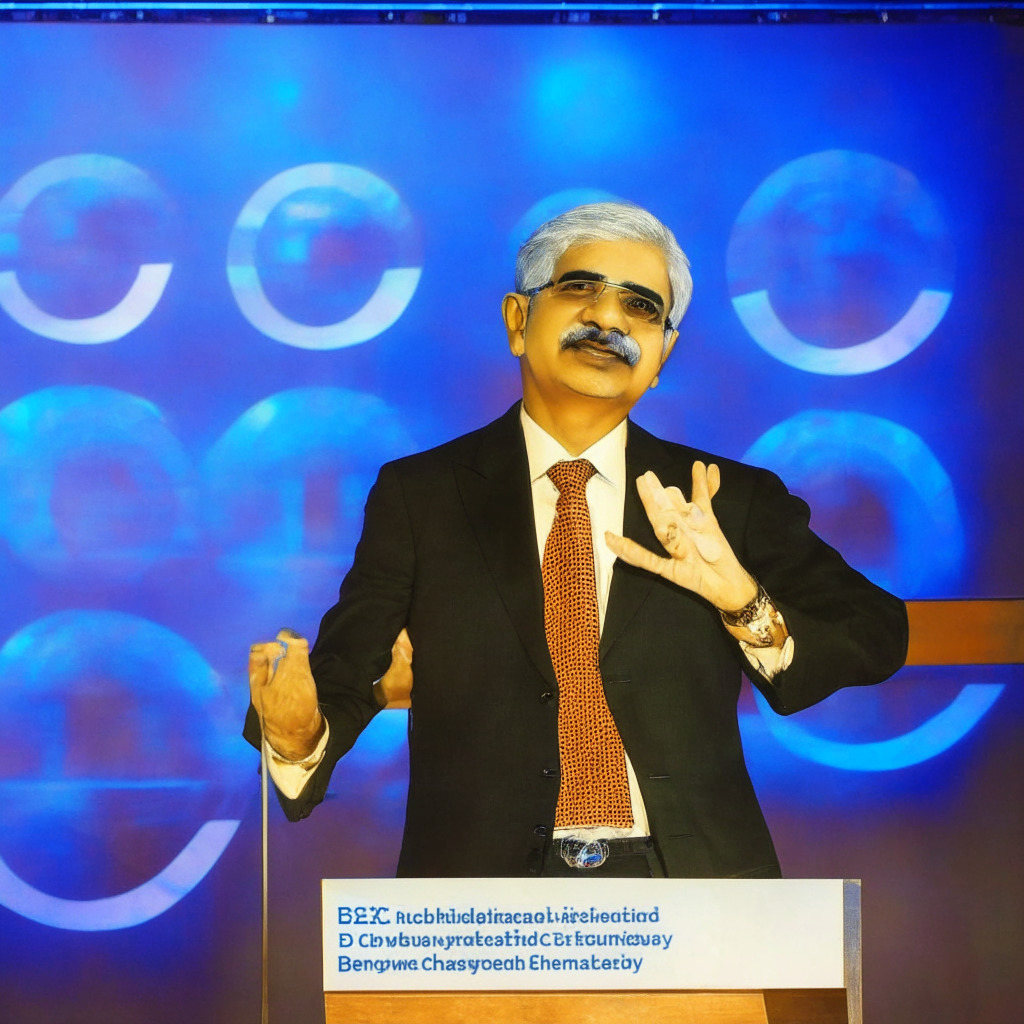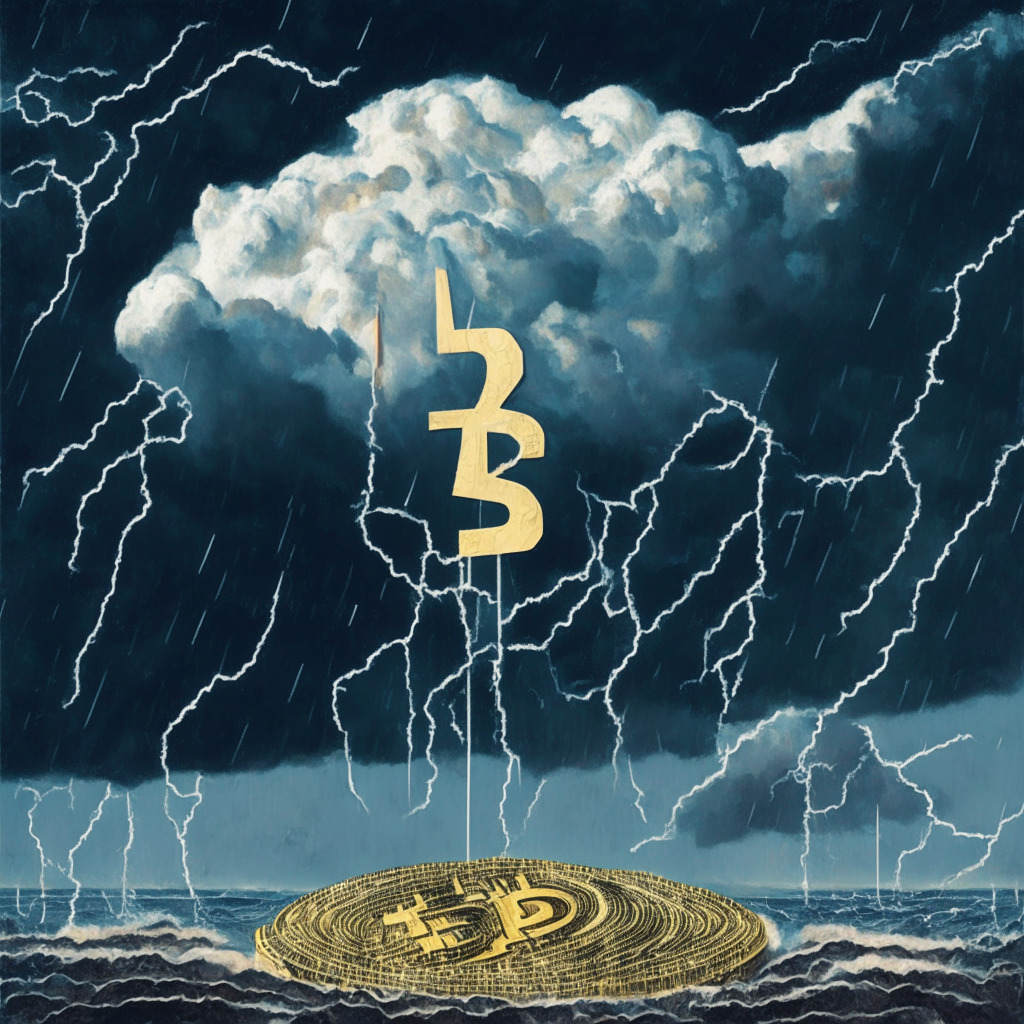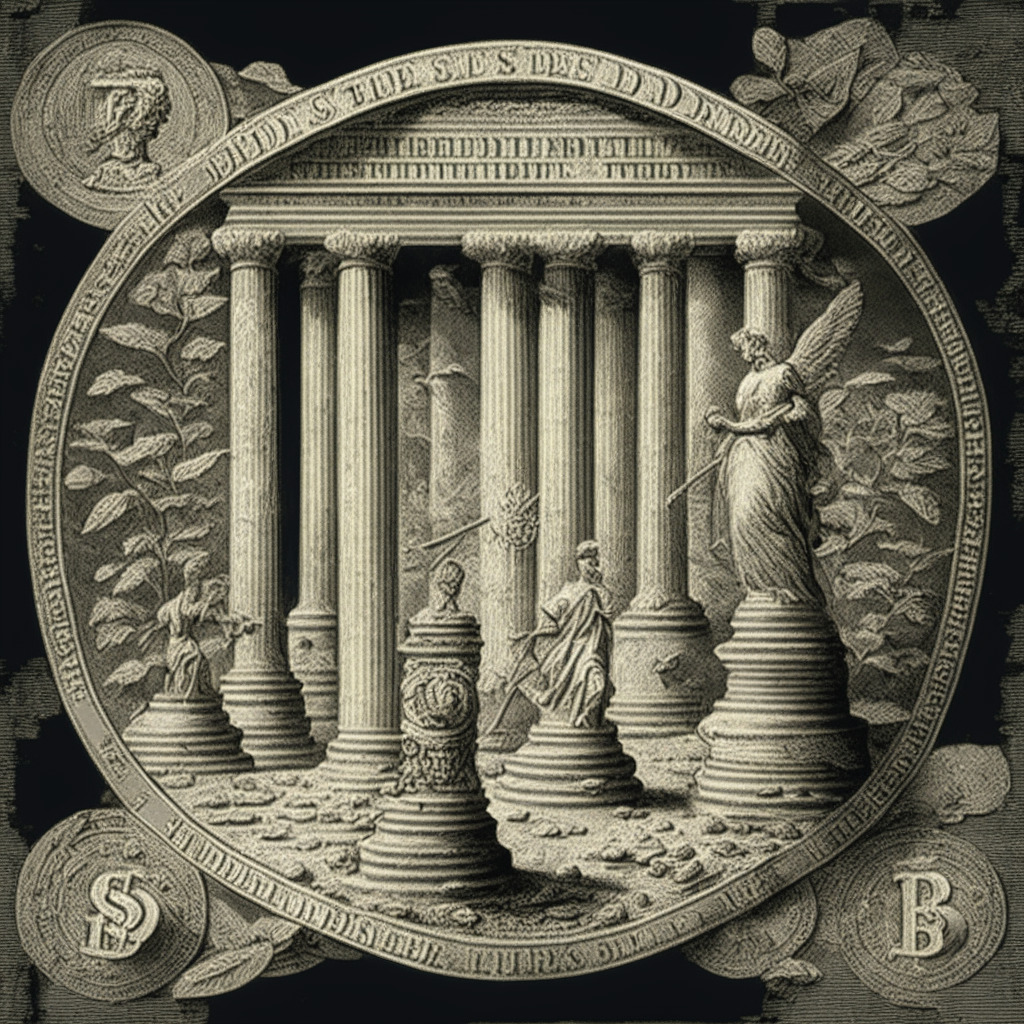‘Project Atlas’, pioneered by Bank of International Settlements and various European Central banks, is developing a proof of concept system tracking on-chain and off-chain cryptocurrency transactions. The project aims to understand macroeconomic relevance of cryptocurrency markets and decentralized finance, offering transparency and potential risk mitigation.
Search Results for: Bank of International Settlement
Assessing Blockchain Impact on Financial Inclusion: Stellar, PwC Framework and Challenging Skepticism
The Stellar Development Foundation and PricewaterhouseCoopers (PwC) have launched a financial inclusion framework to assess the effectiveness of blockchain projects in emerging markets. They found that blockchain-based payments enhance accessibility, reduce transaction costs, and increase transaction speed, notably in financially underserved areas. However, they stress on the importance of responsible design principles and robust governance to mitigate potential challenges and criticism.
Exploring Georgia’s CBDC Initiative: Promises, Concerns and the Future of Digital Currency
The National Bank of Georgia (NBG) is intensifying its efforts on a digital lari central bank digital currency (CBDC) and conducting a live pilot project involving nine firms including Ripple Labs. The envisioned CBDC design includes features like programmable money, asset tokenization, agricultural insurance provision, and real estate transaction automation. Despite potential concerns around monetary freedom, the project symbolizes the promising future of blockchain technology.
Decoding CBDCs: User Privacy, Monetary Freedom, and the Legal Framework
“The future of CBDCs will be influenced by user privacy and monetary freedom of choice, according to Agustín Carstens of the BIS. Legal frameworks protecting user privacy are crucial for their mass adoption. The legitimacy of a CBDC comes from the central bank’s legal authority to issue it, hence legislation is imperative.”
Expanding the Stablecoin Universe: Circle’s EURC Now on Stellar Network
Stablecoin issuer Circle has introduced a new version of its euro-backed stablecoin, EURC, now available on the Stellar network. This innovation offers users the ability to handle business via blockchain networks in local currencies. However, converting blockchain transactions into local currencies remains complicated, highlighting the integration challenges that the blockchain community faces.
Exploring FedNow’s Implications: An Unintentional Preparation for CBDC or a Privacy Nightmare?
“The U.S. Federal Reserve’s FedNow initiative may inadvertently pave the way for the necessary infrastructure required by a potential CBDC (Central Bank Digital Currency) in the U.S. While not a digital token, it creates a platform that could facilitate this. The prospect has raised fresh concerns over potential surveillance and control around a digital dollar.”
Navigating the Rocky Road to CBDC Adoption: Overcoming Obstacles and Addressing Pitfalls
Crypto researcher Fadi Aboualfa casts doubt on the efficiency of Central Bank Digital Currency (CBDC) platforms as substitutes for cash, noting their failure to address vital technical parameters. He highlights interoperability issues and warns of potential consumer trust crises in the event of a bank scandal affecting branded CBDCs.
Hong Kong’s Retail CBDC: Exploring e-HKD’s Potential Impact on Payments and Security Concerns
The Hong Kong Monetary Authority (HKMA) is laying the groundwork for a retail central bank digital currency (CBDC) called ‘e-HKD’. Following a recently released report and global trends, the HKMA will conduct studies, establish necessary foundations, and initiate pilot programs to explore the implementation and practical applications of a retail CBDC while considering potential risks and challenges.
Exploring CBDCs for Wholesale Cross-Border Payments: Project Cedar x Ubin+ Insights
The Federal Reserve Bank of New York’s NYIC and the Monetary Authority of Singapore’s Project Cedar x Ubin+ explored utilizing central bank digital currency (CBDC) for wholesale cross-border payments, focusing on interoperability and efficiency. Their findings showcase potential gains but also highlight concerns and challenges, including privacy, security, and financial system impact.
The Dance of Regulations and Crypto: Boon or Bane to the Blockchain Future?
The former CEO of Voyager Digital, now under regulatory scrutiny for allegedly violating U.S. derivatives regulations, views these allegations as retrospective application of rules. This comes after Voyager’s bankruptcy and amid investigations into its unfair marketing practices. Regulations, while possibly seen as constraints, can provide stability and customer protection in the crypto market.
Blockchain Meets Traditional Finance: A Tale of Progress and Caution from Hong Kong Stock Exchange
The Hong Kong Stock Exchange (HKEX) is integrating blockchain technology via a new platform, “Synapse,” using smart contracts to enhance operational efficiency in financial markets. However, the growing adoption of blockchain also highlights the urgent need for robust security measures and stronger oversight due to risks such as fraud.
Exploring the Impact and Probable Consequences of Project Atlas on Crypto Tracking
“Project Atlas, launched by the Bank for International Settlements (BIS) and four European central banks, aims to revolutionize financial authorities’ management of crypto assets by tracking global asset movements. It melds data from crypto exchanges with data from public blockchains, providing tools for accurate assessment of crypto markets’ economic significance.”
Navigating the Dichotomy of Blockchain’s Future: Innovation vs Regulation
“Yield Protocol’s decision to cease operations, impacted by decreased demand and strict regulations, juxtaposes with Wirex’s launch of W-Pay, a bridge for decentralized applications and traditional payment infrastructures. The future of blockchain remains uncertain amid these contrasting developments.”
Assessing the Impact of AI and Blockchain Export Controls: Opportunities and Threats for the Crypto World
The European Commission is assessing export controls on AI and semiconductor technologies due to their potential risk, technologically and for human rights violations. Four focal areas for risk assessment are AI, advanced semiconductors, quantum technologies and biotechnologies, influenced by their transformative nature and potential for civil/military fusion.
Unleashing Blockchain’s Potential: TradeFinex, SBI and the Balance of Transparency vs Regulation
“SBI Holdings is collaborating with United Arab Emirates’ TradeFinex to foster adoption of enterprise blockchain in Japan. This venture offers blockchain-based financial services and provokes a debate over whether such technology enhances financial transparency or circumvents regulatory oversight.”
Cross-Border Crypto Trading Evolution: Success of Project Mariana and What it Means for wCBDCs
“Project Mariana, a collaboration between the Bank for International Settlements and the central banks of France, Singapore, and Switzerland, has successfully tested a system leveraging cryptocurrency concepts and DeFi technology for seamless cross-border trading in wholesale Central Bank Digital Currencies (wCBDCs).”
Balancing Acts: mBridge’s CBDC Project, Opportunities and Geopolitical Concerns
The mBridge Central Bank Digital Currency (CBDC) project, comprising members from China, Hong Kong, Thailand, UAE, and BISIH, is preparing for expansion. The project offers faster, cost-effective, and transparent cross-border transactions. Concerns rise from potential exploitation for sanctions evasion.
Unraveling SWIFT’s CBDC Interoperability Project: A Leap or a Challenge for the Financial World?
“SWIFT has invited three central banks to participate in its central bank digital currency (CBDC) interoperability project, currently in beta phase. Amid concerns about CBDCs rivalling established platforms, SWIFT’s collaboration could shape the future landscape of digital currencies and finance.”
Navigating the Future of Finance: Analyzing Project Sela’s Digital Currency Triumphs and Trials
“Israel and Hong Kong have completed their retail central bank digital currency (rCBDC) test runs, focusing on private participation, inclusivity, and security. Project Sela merges cash characteristics with digitization benefits, addressing policy, security, technology, and legal issues. However, real-time gross settlement (RTGS) system limitations and developmental challenges remain.”
Deciphering China’s Crypto Future: A Step Beyond USD Dependence?
Chinese scholar, Huang Qicai, suggests digital currencies could stimulate a global transition from USD dependence, potentially leading to a “world currency multi-polarization”. Key nations like China, Russia and Brazil are making significant strides in digital currencies, hinting at a potential change in global monetary governance.
Decentralized Finance vs Centralized Finance: Coming Conflict or Synergetic Co-Existence?
“CEO of Binance, Changpeng Zhao, predicts a future where DeFi surpasses CeFi, fueled by his belief in the potential of decentralization. However, the Bank for International Settlements argues that pure DeFi has limited real-world application due to its requirement for centralized oracles.”
Unraveling Genesis Global Trading’s Unexpected Exit: A Strategic Move or Crypto Collapse?
“Genesis Global Trading’s spot crypto trading platform plans to cease operations by September 18, with all trades to be settled by September 21. The somewhat unanticipated move is made for a ‘business reason’, potentially hinting at a reassessment of Genesis’s business model in the volatile crypto market. Though disconcerting, such shifts often indicate innovation and market evolution in the crypto-verse.”
Unleashing the Power of CBDCs: India’s Approach to Revolutionizing Global Finance
Reserve Bank of India’s Governor, Shaktikanta Das, emphasized the transformative potential of Central Bank Digital Currencies (CBDCs) in a recent G20 TechSprint Finale address. He outlined their potential to revolutionize international payment landscape by reducing costs and increasing transparency. India, currently testing its own CBDC, engages in comprehensive data collection and analysis for future policies. They also invite innovative solutions for cross-border CBDC platforms.
China’s Giant Leap: JD.com’s Digital Yuan Revolution for Supply Chain Financing
“JD.com and ICBC are developing a digital yuan using smart contract technology for supply chain financing, enhancing verification, risk identification, and credit guarantees for SMEs. The solution, fostering trust among financial institutions, aims for wider digital yuan acceptance and marks a significant moment in streamlining financial processes.”
Crypto’s Promise and Peril: Emerging Economies Face Financial Risks from Unregulated Cryptocurrencies
“Cryptocurrencies could potentially elevate financial risks in less developed economies, warns a study by the Bank for International Settlements (BIS). Emerging economies could face prohibitive legislation, pushing crypto activities into obscurity and bringing potential market risks.”
Cryptocurrency Adoption in Emerging Economies: A Boon or a Bane?
“Emerging economies are becoming cryptocurrency adoption centers due to unstable fiat currencies and limited banking access. However, a study by the Bank for International Settlements suggests that cryptocurrencies have “amplified financial risks”. The authors propose regulation rather than an outright ban, aiming to channel innovation into socially useful directions.”
Ripple Joins BIS Task Force Amid SEC Turmoil: Revolution or Corporatization of Crypto?
Ripple announced its partnership with the Bank for International Settlements (BIS), joining the BIS’s Payment Interoperability and Extension (PIE) task force. The inclusion of Ripple aims to improve cross-border payments, aligning with the task force’s objective of enhancing payment systems globally. However, uncertainties lie in Ripple’s ongoing court dispute concerning the status of XRP as a security.
Stablecoins: The Potential Lifeline for US Dollar’s Global Dominance and The Challenge of Regulation
Stablecoins could potentially retain the global dominance of the U.S. dollar, countering “de-dollarization”. The authors express that with proper regulatory frameworks, stablecoins could reestablish the U.S. dollar’s role in international trade and provide relief for hyperinflation-affected economies.
Crypto’s Legal Labyrinth: Analyzing Recent Litigations, Regulations and Their Impact on the Industry
The cryptocurrency community has been hit by various legal and regulatory changes recently, surrounding issues like fraudulent activities, securities violations, and money laundering investigations. These developments demonstrate the dynamic challenges faced when crypto technology interacts with traditional financial structures. For a robust future, it’s crucial that the pace of regulations matches the innovation in this field.
Understanding the Arrival of Russia’s Digital Ruble: Hopes, Fears, and Future Possibilities
“The new law signed by President Putin introduces a digital ruble, operated by the Russian Central Bank, for money transfer and payment. This opens new possibilities and concerns alike, as the centralization draws apprehension from crypto enthusiasts who favor decentralization. Initial public response may be lukewarm, with mass adoption not anticipated before 2025 or 2027.”
Bitso and Stellar: Unleashing Financial Freedom or Inviting Cyber Threats?
“Latin American crypto exchange, Bitso, partners with Stellar’s Anchor Network to facilitate global trade in USDC across Argentina, Colombia, and Mexico. While such a partnership signals major progress, it equally amplifies concerns about market fluctuations, security vulnerabilities and potential for money laundering within the transnational operations of crypto exchanges.”
Blockchains Future: A Tale of Innovation, Regulatory Challenges and Intensified Crypto Adoption
“The future of blockchain technology is promising yet complex, as seen with events like Litecoin’s robust performance, Polygon’s proposed token nomenclature revision, and regulatory challenges worldwide. Developments like Coinbase’s secure messaging system and Google Play’s digital asset integration highlight the merging of conventional institutions with blockchain, while caution remains due to persistent crypto scams.”






























